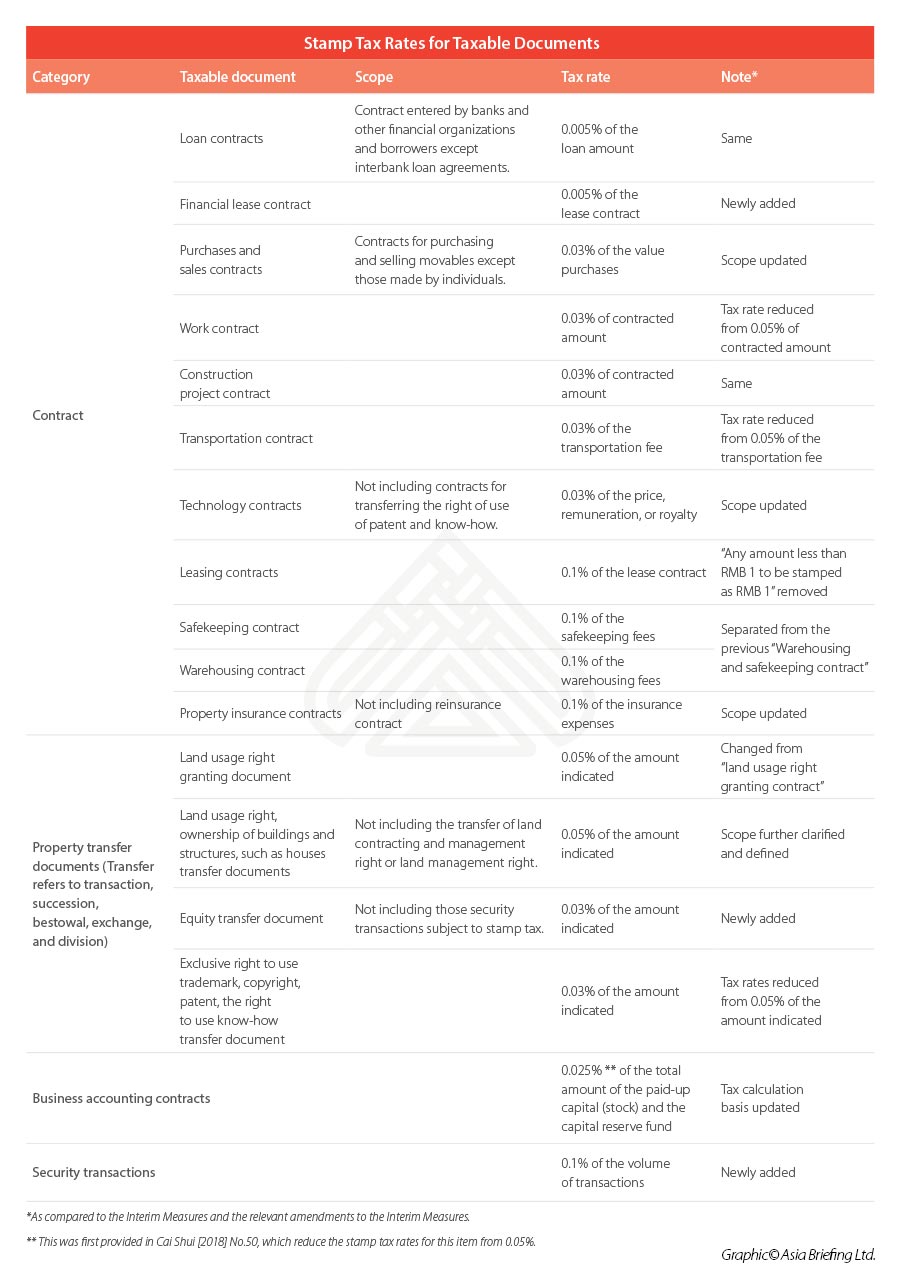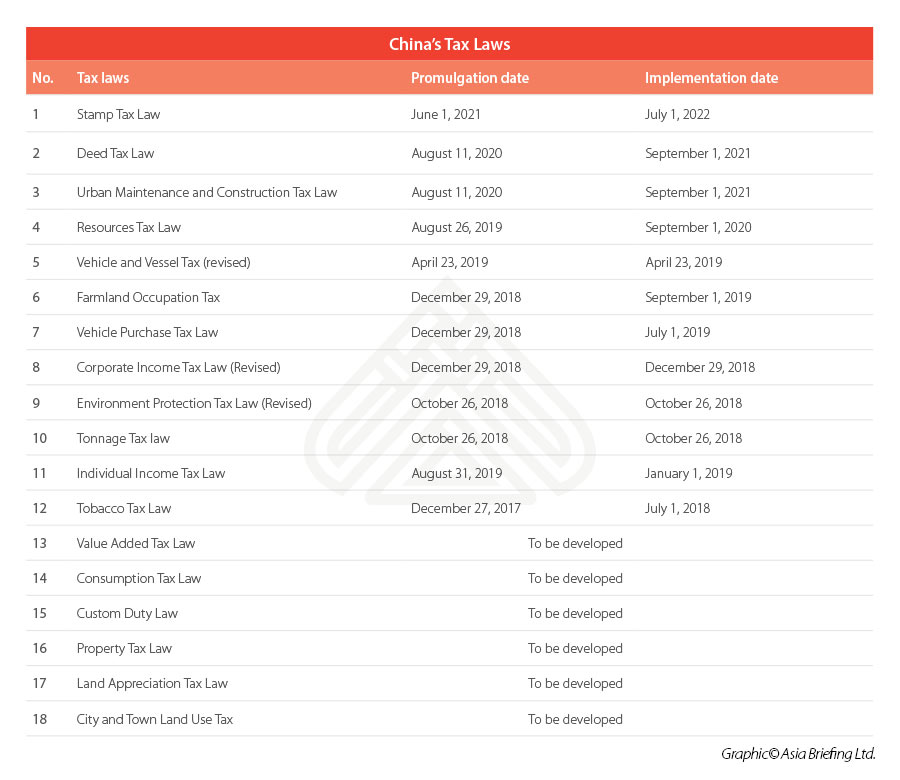China’s new stamp duty law goes into effect July 1, 2022 – there will be some updates to the existing tax system, such as: B. simplification of tax compliance, changes in some tax rates and new exemptions.
On June 10, 2020, the Stamp Duty Act was passed by the Standing Committee of the 13th National People’s Congress in its 29th session, which will come into force on July 1, 2022.
The currently applicable regulation, the transitional regulation of the People’s Republic of China on stamp duty issued by the State Council on August 6, 1988 (the “transitional regulation”), will be repealed at the same time until then.
Compared to the transitional provisions, the Stamp Duty Act retains much of the current stamp duty system in general, but at the same time there are some notable changes, including a reasonable simplification of tax positions and tax cuts.
The most important changes are summarized below.

Some highlights for stamp tax management
With regard to the changes to the Stamp Duty Act, we would like to draw your attention to a few points when dealing with stamp duty in day-to-day operations:
- Previously, stamp duty on securities transactions was regulated by documents issued by the Treasury Department and the State Tax Administration. With the publication of the Stamp Duty Act, this matter is now regulated by a law with greater legal force. The stamp duty on securities transactions will continue to be levied on the transferring securities transactions and not on the acquirer and the applicable tax rate will remain at 0.1 percent of sales.
- The Stamp Duty Act provides that the stamp duty calculation base excludes the VAT amount specified in the taxable contract or transfer of ownership document. However, if the VAT amount is not indicated in the taxable documents, the entire amount may be subject to stamp duty without deduction of VAT amounts. It is therefore recommended that taxpayers indicate the amount of VAT separately from the contract price in the taxable documents.
- Direct donations can be exempt from stamp duty under the Stamp Duty Act, which differs from that in the Corporate Income Tax Act, where the donation must be made tax-free through charitable organizations or people’s governments at district level and above and their departments. Companies are advised to pay attention to this difference and not to reject or overlook this stamp tax savings treatment for direct donations.
- It should be noted that loan agreements signed by corporations and non-financial organizations are not subject to stamp duty. Besides, according to Cai Shui [2017] No. 77, the loan agreements signed by financial institutions and micro and small businesses can be exempt from stamp duty, and the term of the policy has been extended by the Ministry of Finance and the State Tax Administration to December 31, 2021 [2021] # 6. Businesses should be aware of this policy and use it to save tax on loan agreements if they are among the eligible businesses.
Larger background: Law-based tax administration
In 2015, the state tax administration published the guidelines for the comprehensive promotion of legally compliant taxation (Shui Zong Fa [2015] No. 32), which states that China will accelerate the process of revising relevant tax regulations into legal form in order to improve the security of tax policy, strengthen the authority of tax documents and ensure the efficiency of tax administrations. This is an important part of China’s wider rule of law effort, that is, law-based governance of the country.
With the enactment of the Stamp Duty Act, China passed legislation for 12 of the 18 existing taxes. Businesses are well advised to keep a close eye on future developments in Chinese tax laws as they relate to the way in which they will pay taxes in China.

about us
China Briefing is written and produced by Dezan Shira & Associates. The practice supports foreign investors in China and has done so since 1992 through offices in Beijing, Tianjin, Dalian, Qingdao, Shanghai, Hangzhou, Ningbo, Suzhou, Guangzhou, Dongguan, Zhongshan, Shenzhen and Hong Kong. Please contact the company for assistance in China at china@dezshira.com.
In addition to our trade research facilities, Dezan Shira & Associates has offices in Vietnam, Indonesia, Singapore, the USA, Germany, Italy, India and Russia along the Belt & Road Initiative. We also have partner firms that support foreign investors in the Philippines, Malaysia, Thailand and Bangladesh.